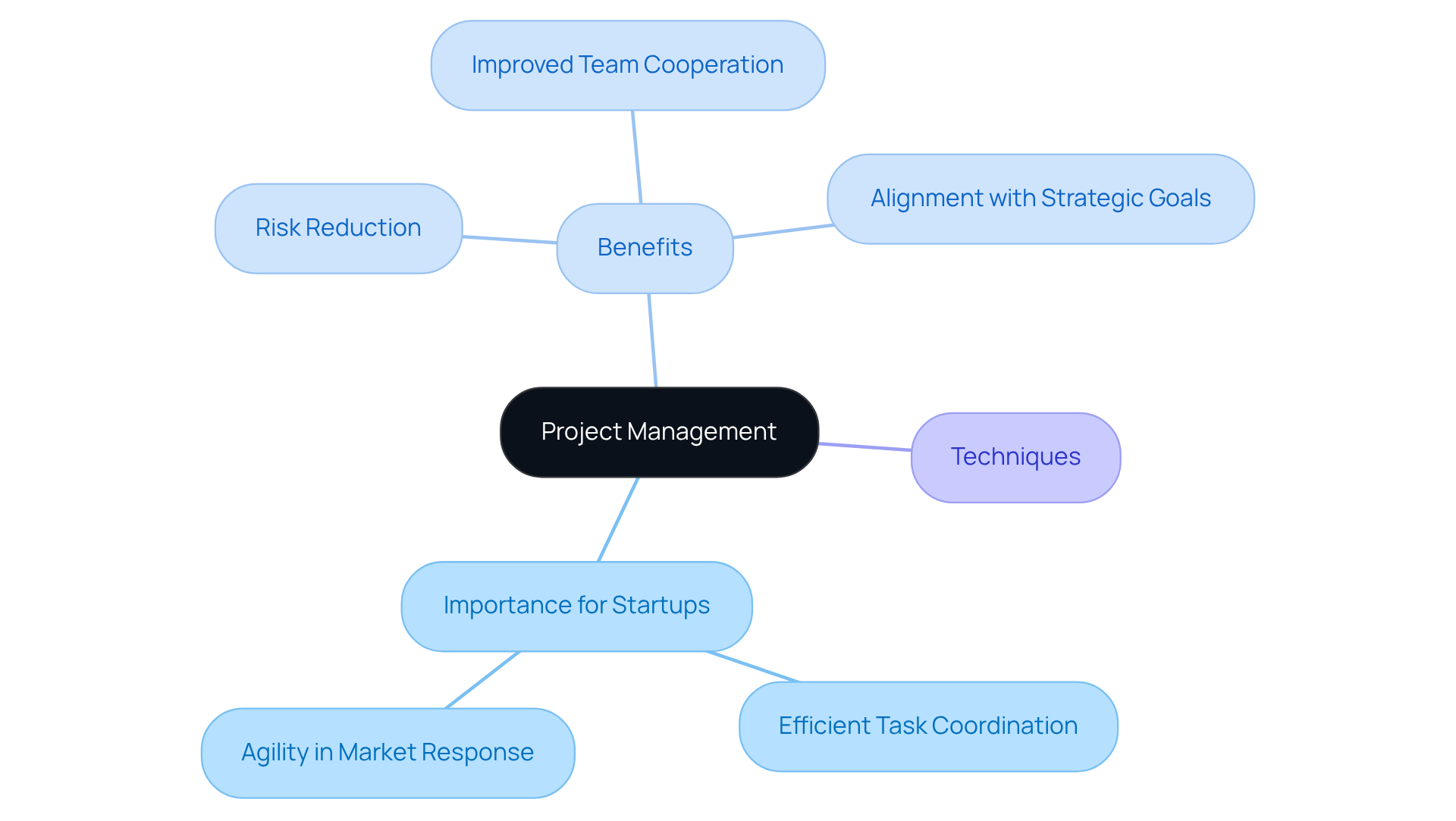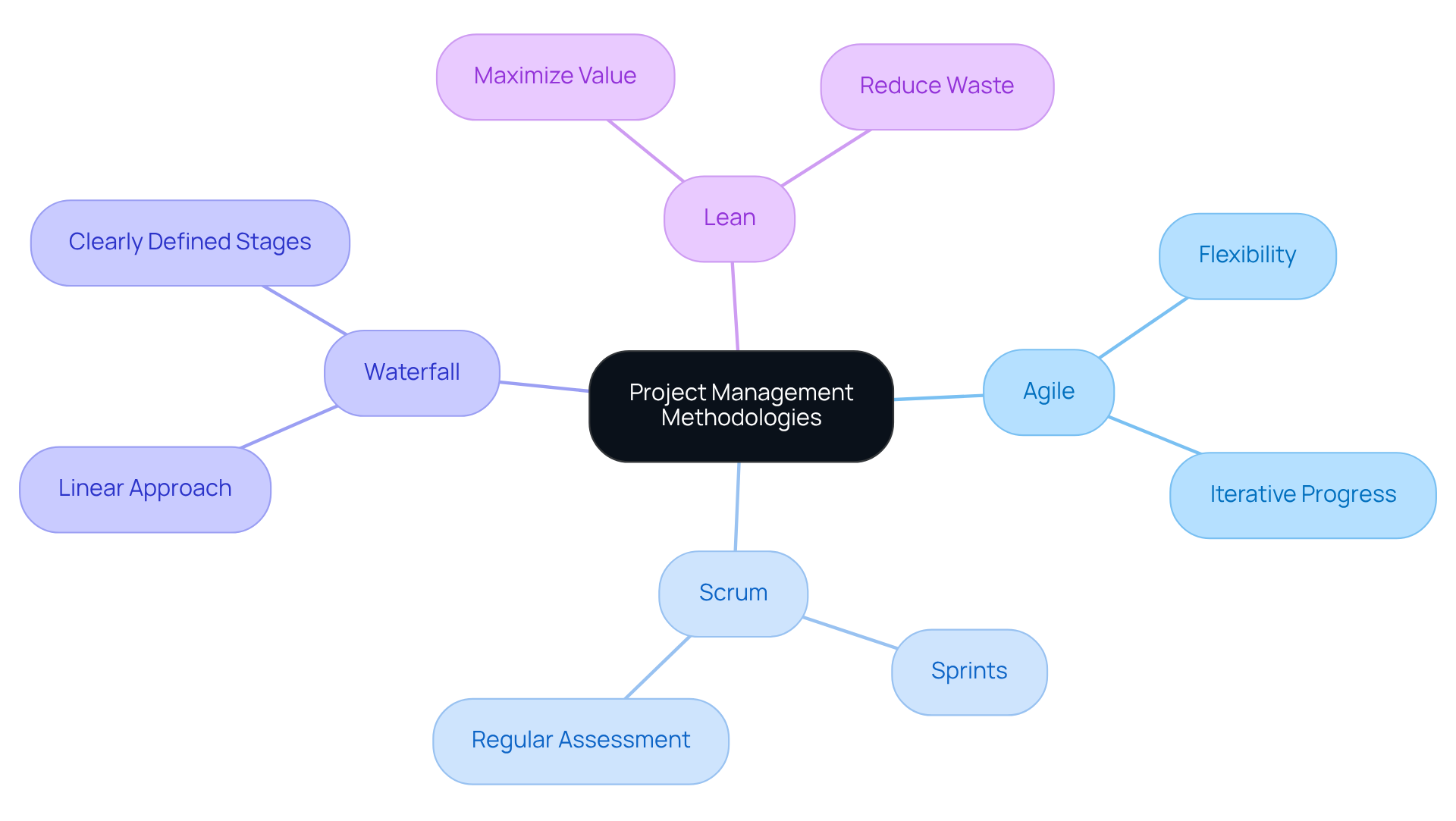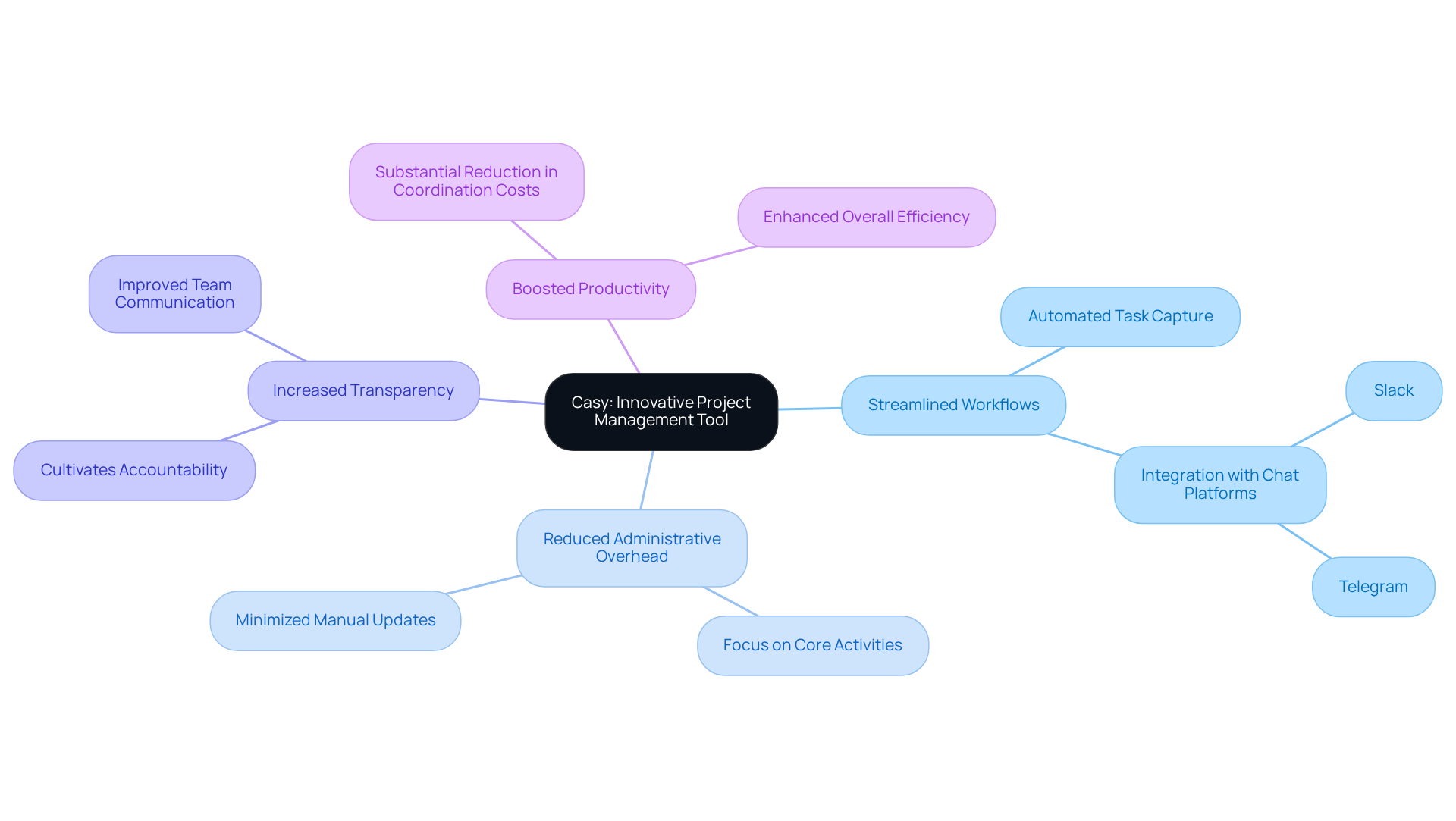Overview
This article delves into the critical project management methodologies that startups must embrace to optimize their operations and enhance efficiency. By examining methodologies such as Agile, Scrum, Waterfall, and Lean, it elucidates how these approaches empower startups to navigate shifting landscapes, refine resource allocation, and ultimately foster growth and innovation.
Why are these methodologies essential? They not only help in adapting to changing environments but also play a pivotal role in improving operational effectiveness. For instance, Agile promotes flexibility, allowing teams to respond swiftly to market demands. Scrum facilitates collaboration and accountability, while Waterfall provides a structured framework for project delivery. Lean focuses on maximizing value while minimizing waste, a crucial aspect for resource-constrained startups.
In conclusion, understanding and implementing these methodologies can significantly impact a startup's trajectory. By leveraging these frameworks, founders can enhance their strategic approach, ensuring they are well-equipped to face the challenges of today's dynamic business environment.
Introduction
The landscape of startups is characterized by rapid change and uncertainty, making effective project management a necessity rather than a luxury. By understanding various project management methodologies, new businesses can streamline operations, enhance team collaboration, and adapt swiftly to market demands. Yet, with numerous approaches available—from Agile to Waterfall—how can startups identify the methodology that aligns best with their unique goals and challenges? This exploration delves into essential strategies and tools that can elevate project management efficiency, ensuring startups are well-equipped to navigate their growth journeys.
Define Project Management and Its Importance for Startups
The discipline of types of project management is essential for planning, executing, and overseeing initiatives aimed at achieving specific objectives within a defined timeframe and budget. For new businesses, efficient task coordination is not just beneficial; it is crucial.
How can startups optimize operations, prioritize activities, and distribute resources effectively in fast-paced environments?
By utilizing strong organizational techniques, new companies can significantly reduce risks, improve team cooperation, and ensure that initiatives align with their strategic goals. This structured approach not only fosters accountability but also empowers new ventures to pivot swiftly in response to market changes. Ultimately, this agility drives growth and innovation.

Explore Key Project Management Methodologies
Several key types of project management methodologies are available for new businesses, each offering unique strengths.
- Agile methodology stands out for its emphasis on flexibility and iterative progress, making it particularly suitable for startups that must adapt swiftly to changing requirements.
- Scrum, a subset of Agile, focuses on delivering work in short cycles known as sprints, enabling teams to regularly assess their progress.
- Conversely, the Waterfall methodology follows a linear approach, which can be advantageous for projects with clearly defined stages and requirements.
- The Lean approach aims to maximize value by reducing waste, a principle that resonates with new businesses striving to optimize their resources.
By understanding these types of project management methodologies, new ventures can choose the one that best aligns with their operational strategies and objectives.
Which methodology do you think would suit your business needs the most?

Utilize Innovative Tools to Enhance Project Management Efficiency
Innovative project management tools are essential for enhancing efficiency in startups. Casy exemplifies how automation can streamline workflows by capturing key information from group communications and transforming it into actionable tasks. By integrating with popular chat platforms, Casy minimizes the need for manual updates, allowing teams to focus on their core activities. This not only reduces administrative overhead but also cultivates a culture of transparency and accountability within teams.
Startups leveraging Casy can significantly improve their processes, leading to better outcomes and increased productivity. Consider this: companies that have adopted Casy report a substantial reduction in coordination costs and a notable boost in overall efficiency. This showcases the transformative power of automation in types of project management. Are you ready to elevate your startup's efficiency with Casy?

Conclusion
Effective project management stands as a cornerstone for the success of startups, empowering them to navigate the complexities of launching and growing a business. By employing various methodologies and innovative tools, new ventures can streamline operations, enhance collaboration, and remain agile in a rapidly changing market landscape.
The significance of understanding different project management methodologies—such as Agile, Scrum, Waterfall, and Lean—cannot be overstated. Each approach offers distinct advantages that can be tailored to meet the unique needs of startups. Moreover, the introduction of tools like Casy illustrates how automation can significantly improve workflow efficiency and foster a culture of accountability among team members.
In conclusion, embracing effective project management strategies is not merely a choice but a necessity for startups aiming for sustainable growth. By selecting the right methodology and leveraging innovative tools, new businesses can optimize operations and drive success. Startups should proactively explore these methodologies and tools, ensuring they are well-equipped to thrive in a competitive environment.
Frequently Asked Questions
What is project management?
Project management is the discipline of planning, executing, and overseeing initiatives aimed at achieving specific objectives within a defined timeframe and budget.
Why is project management important for startups?
For new businesses, efficient task coordination is crucial as it helps optimize operations, prioritize activities, and distribute resources effectively in fast-paced environments.
How can startups benefit from strong organizational techniques in project management?
Strong organizational techniques can help startups significantly reduce risks, improve team cooperation, and ensure that initiatives align with their strategic goals.
What role does project management play in fostering accountability within startups?
A structured approach to project management fosters accountability among team members, empowering new ventures to respond quickly to market changes.
How does project management contribute to growth and innovation in startups?
By enabling agility and effective resource allocation, project management drives growth and innovation, allowing startups to pivot swiftly in response to evolving market conditions.




